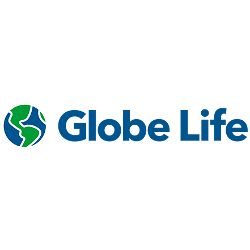
Express written consent is essential for businesses using voice broadcasting to remain compliant with industry regulations and build trust with recipients. At Sigma Voice, we prioritize compliance and transparency, guiding our clients through best practices for obtaining and managing express consent. Whether for marketing, notifications, or informational broadcasts, ensuring proper consent helps protect your business and foster positive engagement with your audience.
The Telephone Consumer Protection Act (TCPA) is a crucial regulation that protects consumers from unwanted and intrusive communications. It mandates that businesses obtain proper consent before making telemarketing calls, sending text messages, or using automated telephone dialing systems. Compliance with TCPA not only helps avoid hefty fines and legal issues but also builds trust with customers by respecting their communication preferences.
Express Written Consent: This term refers to explicit permission given in writing by an individual, allowing a business to contact them through calls or text messages using an automatic telephone dialing system. This consent must be clear and unambiguous, ensuring the individual understands what they are agreeing to receive.
Prior Express Written Consent: This is a specific type of express written consent that must be obtained before any communication is made. It requires businesses to secure consent in advance, documenting and retaining this consent to ensure compliance with TCPA regulations.
In the United States, the Telephone Consumer Protection Act (TCPA) requires businesses to obtain express written consent from individuals before making telemarketing calls or sending text messages using an automatic telephone dialing system. This regulation is enforced by the Federal Communications Commission (FCC) and aims to protect consumers from unsolicited and intrusive communications.
In Canada, similar regulations are governed by the Canadian Radio-television and Telecommunications Commission (CRTC) under Canada's Anti-Spam Legislation (CASL). CASL requires businesses to obtain explicit consent before sending commercial electronic messages, including text messages and emails. This legislation is designed to reduce spam and ensure that consumers receive communications they have agreed to receive.
Understanding real-world scenarios helps illustrate the importance of obtaining express written consent:
Obtaining prior express written consent involves several key steps:
By following these guidelines, businesses can effectively obtain and manage TCPA prior express written consent, ensuring compliance with regulations and maintaining positive relationships with their customers.
Below are a few examples from websites you may be familiar with.
I consent to receive telemarketing calls or texts at this number using an automatic telephone dialing system by, or on behalf of, Hyundai and its authorized dealers. I understand I do not have to consent in order to purchase any products or services. Carrier charges may apply.
Mobile Consent Agreement*
I agree to receive future calls on my mobile number from AAA (or on AAA's behalf) regarding my membership or insurance, including renewal reminders, and other offers. These calls may use an automatic telephone dialing system, prerecorded voice, or text messages. Providing my consent is not a condition to the purchase of any AAA good or service.
ELECTRONIC COMMUNICATIONS
When you use Amazon Services, or send e-mails, text messages, and other communications from your desktop or mobile device to us, you may be communicating with us electronically. You consent to receive communications from us electronically, such as e-mails, texts, mobile push notices, or notices and messages on this site or through the other Amazon Services, such as our Message Center, and you can retain copies of these communications for your records. You agree that all agreements, notices, disclosures, and other communications that we provide to you electronically satisfy any legal requirement that such communications be in writing.
These examples illustrate how major companies ensure compliance with TCPA regulations:
To ensure compliance and transparency, these companies implement the following practices:
By following these practices, these companies demonstrate their commitment to TCPA compliance and transparent communication with their customers.
Under the Telephone Consumer Protection Act (TCPA), express written consent is required in several situations to protect consumers from unsolicited communications. These situations include:
To better understand the importance and application of express written consent, consider the following examples and case studies:
A national retail chain wants to use an automatic dialing system to call potential customers about upcoming sales events. To comply with TCPA regulations, the company must first obtain express written consent from each customer they plan to call. This consent can be collected through online forms, during in-store sign-ups, or via email confirmation.
A fitness center plans to send text messages with promotional offers and class schedules to its members. Before sending the SMS broadcasting campaign, the fitness center needs to secure express written consent from each member, confirming their willingness to receive such communications. This can be done through membership sign-up forms or a dedicated opt-in process via text.
An insurance company intends to use voice broadcasting to inform clients about policy updates and new services. To adhere to TCPA requirements, the company must gather express written consent from their clients, allowing the use of such messages. This consent can be obtained during policy enrollment or through a consent form provided via email.
A telecommunications provider launched a large-scale marketing campaign using automated calls and text messages to reach out to existing and potential customers. Despite having verbal consent from some customers, the provider faced significant fines for not having documented express written consent. This case underscores the importance of maintaining proper records of consent and ensuring all communications comply with TCPA guidelines.
By understanding and applying these requirements, businesses can avoid legal pitfalls and foster positive relationships with their customers through respectful and compliant communication practices.
Obtaining express written consent is essential for complying with TCPA regulations and ensuring that communications with customers are respectful and lawful. Here are some methods and best practices for securing express written consent:
Using templates can help standardize the process of obtaining express written consent. Here are some examples:
I consent to receive telemarketing calls from [Company Name] at the phone number provided above. I understand that these calls may be made using an automatic telephone dialing system, and that consent is not a condition of purchase.
I agree to receive text messages from [Company Name] at the phone number provided above. These messages may include promotions and special offers. Message and data rates may apply. Consent is not a condition of purchase.
I give my express written consent to receive prerecorded voice messages from [Company Name] at the phone number provided above. I understand that these messages may be used for promotional purposes, and that my consent is not required for purchase.
There are several ways to collect express written consent, using both digital and traditional methods:
By implementing these methods and best practices, you can ensure that you obtain express written consent in a compliant and effective manner.
Individuals have the right to revoke their prior express written consent at any time. Businesses must provide easy and accessible methods for customers to withdraw their consent. Here are common methods through which individuals can revoke their consent:
Handling revocations properly is crucial for legal compliance and customer satisfaction. Here are some best practices to follow:
By following these best practices, businesses can ensure that they handle revocations of express written consent in a compliant and respectful manner, maintaining customer trust and adhering to legal requirements.
One common area of confusion is the difference between express written consent and expressed consent. While they may sound similar, they have distinct meanings:
Several terms and scenarios often cause confusion when it comes to TCPA compliance:
There are several misconceptions about what constitutes proper consent under the TCPA. Here are some key points to address these misunderstandings:
By understanding these common questions and misconceptions, businesses can better navigate the complexities of TCPA compliance and ensure they obtain and manage consent appropriately.
Professional sports organizations like Major League Baseball (MLB) and the National Football League (NFL) have unique considerations when it comes to obtaining express written consent:
Different industries have tailored approaches to obtaining and managing express written consent. Here are a few examples:
In the healthcare industry, patient consent is crucial for communications involving personal health information. Consent forms must be clear and comply with regulations such as HIPAA (Health Insurance Portability and Accountability Act). Automated reminders for appointments, medication refills, and health tips require express written consent from patients.
Financial institutions use express written consent to communicate with customers about account updates, promotional offers, and alerts. Due to the sensitive nature of financial information, consent processes must be secure and well-documented. Customers often provide consent through online banking platforms or in-person interactions at bank branches.
E-commerce businesses rely heavily on automated communications for marketing, order confirmations, and delivery updates. Obtaining express written consent is typically done during the checkout process, where customers opt-in to receive notifications about their purchases and promotional offers. Clear and conspicuous consent language is essential to ensure compliance.
Telecommunication companies use express written consent to manage customer communications related to service updates, billing reminders, and promotional offers. Consent is usually gathered when customers sign up for services, either online or through customer service interactions. Maintaining accurate records of consent is crucial for compliance and customer trust.
Understanding industry-specific considerations helps businesses tailor their consent processes to meet regulatory requirements and customer expectations effectively. By adhering to best practices, companies can ensure transparent and compliant communication strategies across various sectors.
Understanding and complying with express written consent requirements is crucial for businesses to avoid legal issues and build trust with customers. The TCPA regulations mandate clear, written consent for various types of communications, especially those using automated systems. Failing to comply can result in significant penalties and damage to a company’s reputation.
Express written consent ensures that customers are fully aware of and agree to receive communications, fostering a transparent and respectful relationship. This compliance not only protects businesses legally but also enhances customer satisfaction and trust.
To effectively manage and comply with express written consent requirements, businesses should adopt the following best practices:
By following these best practices, businesses can effectively navigate the complexities of TCPA compliance, ensuring that they communicate with customers legally and respectfully. This approach not only helps in avoiding legal pitfalls but also contributes to building a positive and trust-based relationship with customers.
For those seeking to deepen their understanding of TCPA regulations and consent requirements, here is a list of additional resources and official guidelines:
These resources provide valuable insights and guidance for businesses looking to navigate TCPA and Canadian regulations effectively and maintain compliance. Staying informed and up-to-date with the latest guidelines and best practices is crucial for avoiding legal issues and building trust with customers.
Q1: What is express written consent?
A1: Express written consent is explicit permission given in writing by an individual, allowing a business to contact them through calls or text messages using an automatic telephone dialing system. This consent is essential for complying with TCPA regulations.
Q2: When is express written consent required under the TCPA?
A2: Express written consent is required for telemarketing calls or text messages to mobile phones using an automatic dialing system, calls or texts that include advertisements or solicitations, and any communication involving prerecorded or artificial voice messages.
Q3: How can businesses obtain express written consent?
A3: Businesses can obtain express written consent through clear and conspicuous disclosure, separate consent forms, online forms, email confirmations, SMS opt-in campaigns, and physical forms. It is crucial to document and record the consent accurately.
Q4: How can individuals revoke their prior express written consent?
A4: Individuals can revoke their consent by replying with keywords like "STOP" or "UNSUBSCRIBE" to text messages, sending an email request, calling customer service, submitting an online form, or sending a written request via mail. Businesses must process these requests promptly.
Q5: What are the legal implications of not complying with TCPA consent requirements?
A5: Non-compliance with TCPA consent requirements can result in significant penalties, legal disputes, and damage to a business's reputation. It is crucial to adhere to the regulations to avoid these consequences.
Q6: What is the difference between express written consent and expressed consent?
A6: Express written consent is explicit permission given in writing, while expressed consent can be verbal or written. For TCPA compliance, written consent is often required.
Q7: What are some best practices for handling express written consent?
A7: Best practices include using clear consent language, keeping consent forms separate from other terms, maintaining accurate records, providing easy opt-out options, regularly reviewing compliance, and training staff on handling consent requests.
Q8: How is express written consent handled in different industries?
A8: Different industries have tailored approaches to obtaining and managing express written consent. For example, healthcare requires consent for communications involving personal health information, while e-commerce businesses obtain consent during the checkout process for order confirmations and promotional offers.
Q9: Are there any industry-specific considerations for obtaining express written consent?
A9: Yes, certain industries, such as professional sports organizations like Major League Baseball and the NFL, have specific considerations for obtaining express written consent due to the nature of their communications with fans.
Q10: Where can I find additional resources and official guidelines on TCPA and consent requirements?
A10: Official guidelines and resources can be found on websites like the FCC Telemarketing and Robocalls page, the FTC Telemarketing Sales Rule page, and the PIPEDA page for Canadian regulations.
Read what our satisfied customers have to say about Sigma Voice. Discover how our advanced communication solutions have transformed their business operations and customer interactions.
Tom was awesome! He spent time on the phone helping me get set up. Great intro by Tom to my new voice blast service! Wish I c...
Sigma was very helpful in our company meeting a call documentation requirement for a Federal regulation. Tom gave us great se...
Sigma Voice has allowed our organization to disseminate information quickly, thoroughly and to a wide audience. The software ...
This is the first time I used this company and am extremely pleased with the excellence in customer service. There was no nee...
This service is fantastic. Setting up automated calls is super easy and affordable. I highly recommend it.
Sigma Voice was so easy to set up. I needed to get an immediate message out to my 60+ family members. I sent a sign up messag...

Globe Life is a leading insurance provider known for its trusted coverage and excellent customer service.

Harvard University, one of the world's most prestigious institutions, trusted our solutions for communication excellence.

Sears has relied on innovative solutions to improve its customer outreach and retail operations.

The largest industrial union in North America trusts us for seamless communication solutions.

UNITE HERE connects workers across the U.S. with our dependable communication systems.

The American Red Cross depends on us to deliver messages during critical missions and emergencies.
Experience the benefits of Sigma Voice's advanced communication solutions, including IVR, SMS broadcasting, voice broadcasting, and telecom auditing. Sign up today to enhance your customer interactions, streamline your business processes, and optimize your telecom expenses with expert auditing services.
Prefer to talk right away? Call us at (800) 905-9140.
